An industrial sewing machine jack is a precision-engineered, robust, and adaptable tool crafted for the rigors of heavy-duty sewing in a variety of sectors. Capable of handling an array of materials from delicate textiles to sturdy leathers, these machines deliver unwavering stitch quality and operational efficiency. The industrial sewing machine jack is an essential fixture in clothing factories, production lines, and niche markets such as advertising firms and construction supply stores. Prioritizing productivity and long-term viability, these machines are pivotal for entities aiming to stay at the forefront of the dynamic industrial sewing landscape.
Types and Functions of Jack Industrial Sewing Machines
The jack industrial sewing machine lineup presents a diverse array of models, each tailored to meet specific sewing requirements. The jack f4 direct drive industrial lockstitch sewing machine is renowned for its dependability and user-friendliness, making it a go-to for straight stitching across various textiles. The jack overlocker, adept at producing neat edges, is crucial for crafting professional-grade apparel. For tougher materials, the jack h2 sewing machine is distinguished by its sturdy construction and potent performance. The jack a5e sewing machine and jack f5 machine boast advanced functionalities like automated thread cutting and built-in LED illumination, enhancing both productivity and user convenience. Each model is conceived with particular tasks in mind, from the jack 20u sewing machine's proficiency in zigzag stitching to the jack a4e industrial sewing machine's specialization in high-speed straight stitching. The jack and juki sewing machine models merge Jack's resilience with Juki's stitching finesse, catering to those who demand Juki's delicate touch along with Jack's industrial robustness.
Structure and Core Components
The architecture of a jack industrial sewing machine is a testament to mechanical ingenuity, incorporating several vital components that operate in harmony. At its core is a potent servo motor, propelling the machine's functions with precision and efficiency. The PLC enables programmable operations, facilitating the customization and automation of sewing designs. A solid frame, typically cast iron, anchors the machine, dampening vibrations for a steady performance. The needle bar, presser foot, and feed dogs are meticulously calibrated to guide fabric smoothly, yielding even stitches. Every element, from the tiniest bearing to the intricate gearbox, is crafted for endurance and peak performance, ensuring the machine's capability to meet the demands of industrial sewing. These components are assembled with precision to enable a fluid process, where fabric is fed, stitched with exceptional accuracy, and collected neatly, primed for subsequent production phases.
Materials and Durability
The selection of materials for constructing a jack industrial sewing machine is pivotal for its efficacy and durability. Premium metals such as steel and iron are chosen for their robustness and resistance to wear, allowing the machine to function extensively without deterioration, even amidst the rigors of constant industrial operation. The characteristics of these metals, including tensile strength and hardness, render them ideal for the machine's precision parts, which must preserve their shape for accurate stitching. The resilience of these materials not only demonstrates the machine's capacity to endure industrial environments but also mirrors Jack sewing machines' dedication to excellence.
Business Usages and Applications
The jack industrial sewing machine is employed across a broad spectrum of commercial environments. In apparel workshops, it expedites clothing production through swift, uniform stitching. Textile factories deploy these machines to assemble a range of products, from furniture coverings to heavy-duty textiles. Advertising agencies utilize them to fabricate banners and marketing materials with strong seams. The construction sector benefits from the machine's prowess in sewing through robust materials, contributing to the creation of items like protective tarps and safety equipment. Each use case not only requires the machine's formidable performance but also depends on its precision to ensure the final product adheres to stringent quality norms. The value these machines bring to businesses is unmatched, as they bolster production efficiency and contribute to the superior quality of finished goods, which is essential for sustaining customer satisfaction and loyalty.
Feed Mechanism and Stitch Formation
The feed mechanism of a jack industrial sewing machine is fundamental to its functionality, governing the movement of fabric during the sewing process. Features such as needle feed and walking foot are indispensable for managing thick or layered materials, guaranteeing consistent stitching without misalignment. The stitch formation prowess of these machines is just as varied, capable of executing everything from a basic chain stitch to intricate overlock and cover stitches. This adaptability is crucial for accommodating the diverse demands of industrial sewing tasks. The accuracy of the feed mechanism directly influences the uniformity of stitch formation, which is essential for producing high-quality seams that are both visually appealing and structurally robust.
After-Sales Service and Support
After-sales service for the jack industrial sewing machine is all-encompassing, with provisions such as video technical assistance, online support, and on-site maintenance and repair services. For enterprises operating internationally, engineers are available to service machinery abroad, ensuring swift and effective issue resolution. Such comprehensive support is vital for businesses that depend on their sewing machines for uninterrupted production, as downtime can incur significant costs. The provision of extensive after-sales services underscores the manufacturer's commitment to customer contentment and machine dependability.
How does the feed mechanism affect the sewing process?
The feed mechanism plays a pivotal role in dictating fabric movement through the sewing machine, thereby influencing stitch quality and the range of materials that can be sewn. For example, a walking foot mechanism is optimal for preventing slippage when handling multiple layers or slippery textiles. The needle feed mechanism is favored for precise stitching, as it synchronizes needle and material movement for uniform stitch lengths. A thorough understanding of each feed mechanism can significantly improve the sewing process, allowing for adjustments tailored to the specific requirements of the material and project.
What are the key considerations when choosing an industrial sewing machine?
In choosing an industrial sewing machine jack, essential factors to consider include the material types you'll be working with, the desired stitch patterns, the machine's speed, and its feed mechanism. It's also crucial to assess the machine's core components, such as the PLC and gearbox, for dependability and operational efficiency. Furthermore, the scope of after-sales service should be weighed to guarantee continued support. The machine's versatility for various sewing tasks, its user-friendliness, and the availability of replacement parts are additional considerations that can steer the decision-making process.
How to maintain an industrial sewing machine for longevity?
Proper maintenance is key to extending the life of an industrial sewing machine jack. Routine cleaning to eliminate lint and residue, lubrication of moving parts, and prompt replacement of worn components are fundamental practices. It's also imperative to select the appropriate needles and threads for different fabrics and to adjust the machine settings based on the fabric's weight and thickness. A well-maintained machine not only runs more efficiently but also produces superior stitches, which is vital for businesses that take pride in the quality of their offerings.

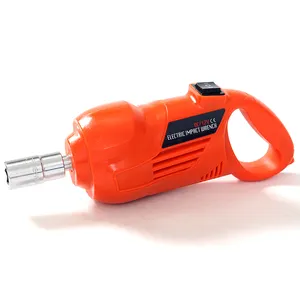
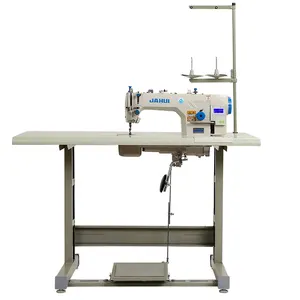



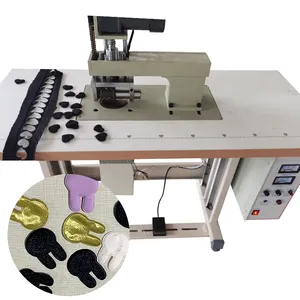





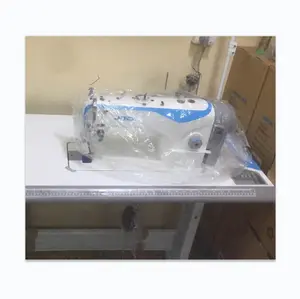
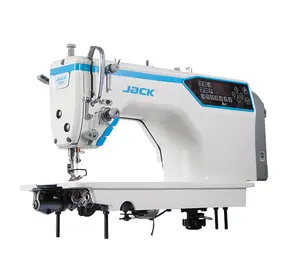






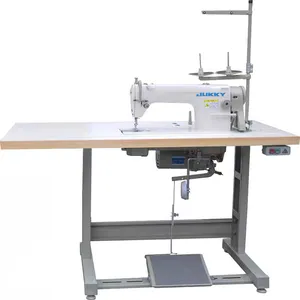





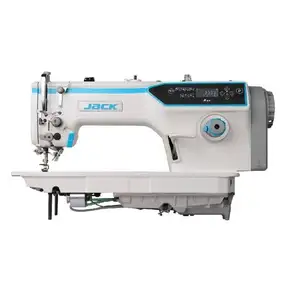



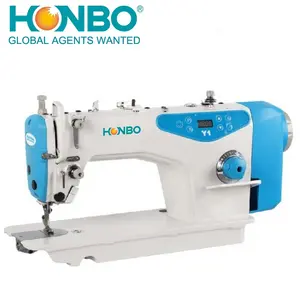

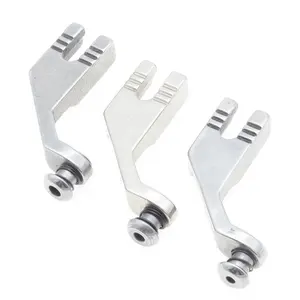

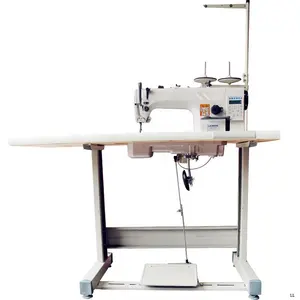
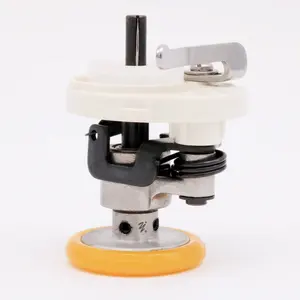


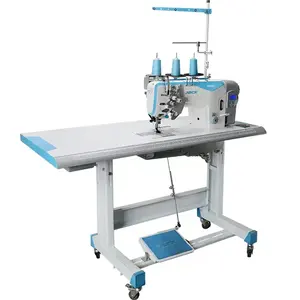

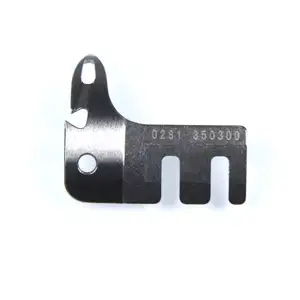



































 浙公网安备 33010002000092号
浙公网安备 33010002000092号 浙B2-20120091-4
浙B2-20120091-4